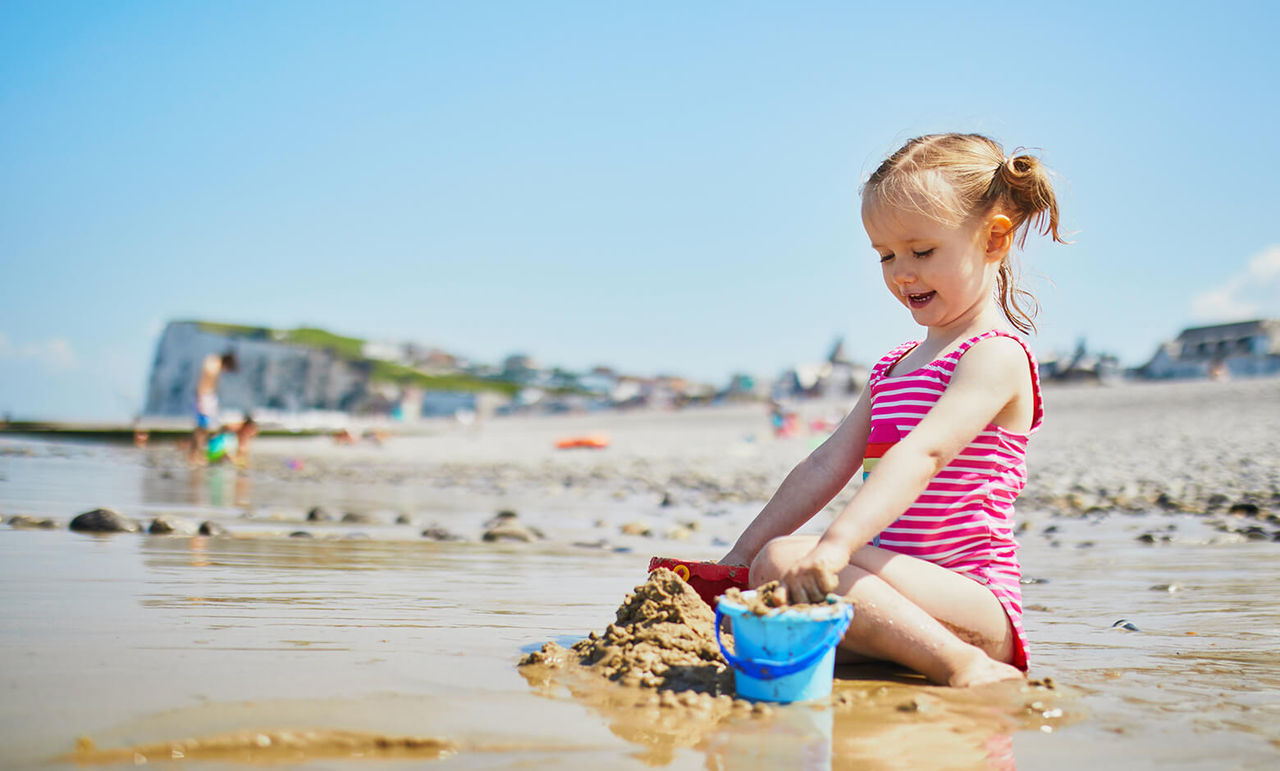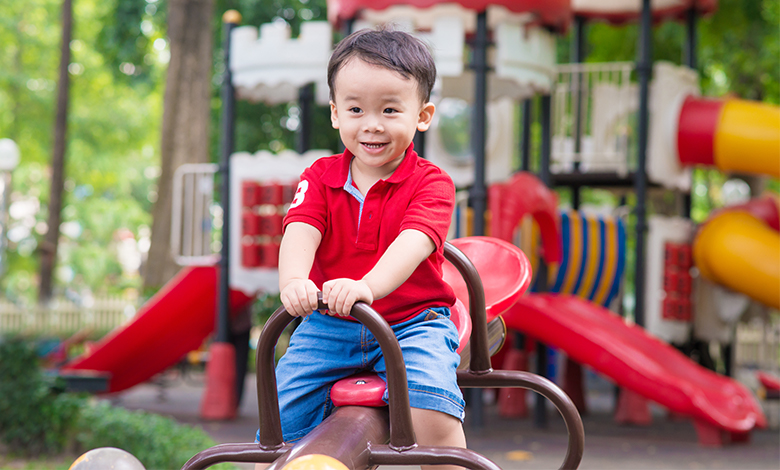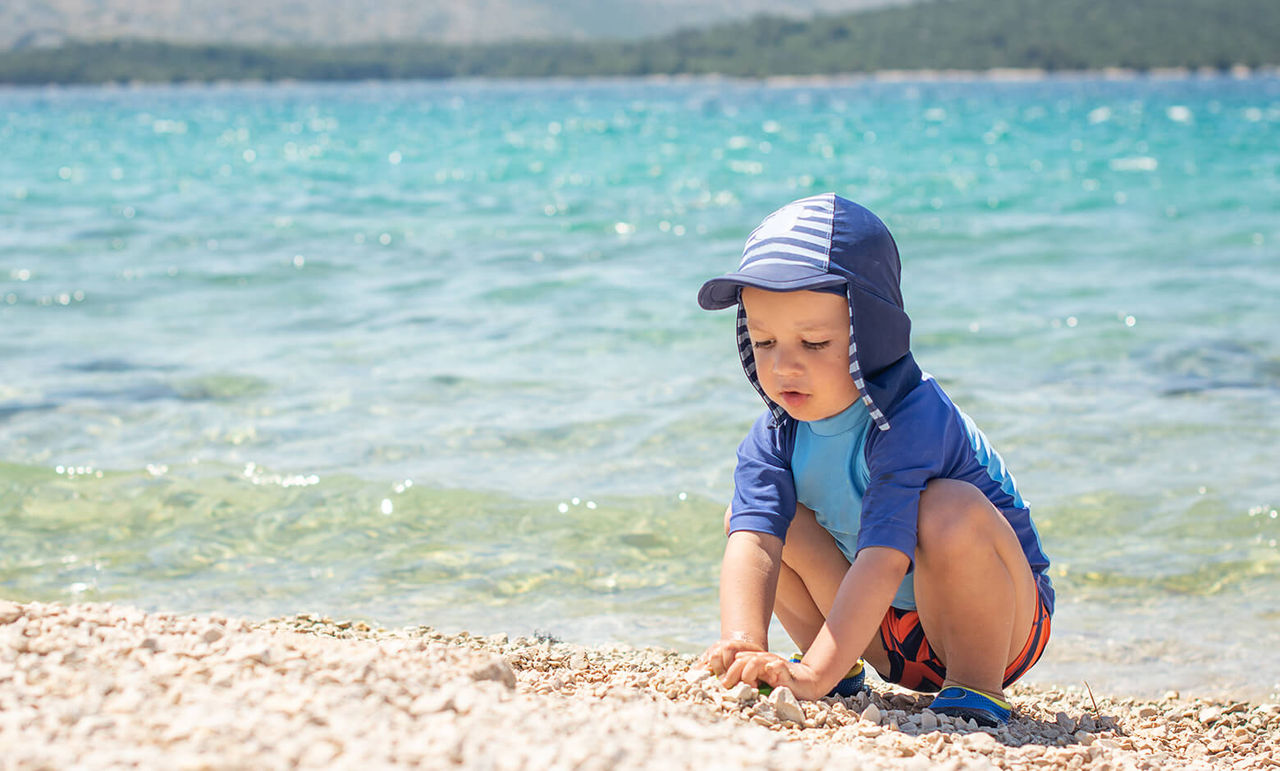- Dirt can be your toddler’s friend
- The great outdoors brings with it vitamin D, mental health benefits and new cognitive functions, and cultivates creativity
- Read about how to bring the benefits of the outdoors into your child’s play
Why it’s good for kids to get outdoors and get dirty

Key points
Less than one quarter of children spend the recommended 60 minutes a day participating in physical activity.1 Would a bit more time in the fresh air work wonders for our kids? If the research is anything to go by, then it’s a firm ‘yes’.
The benefits of dirt on their immune system
The hygiene hypothesis2 claims that, over time, western civilisation has become much cleaner and focused on removing harmful bacteria from our environment. However, as a consequence of this over-cleaning, we’re no longer exposing children to enough dirt, grime and germs to kick-start a well-functioning immune system.The precise things we think will do our little ones harm are, in fact, the things that may strengthen their resilience against things like asthma3 and allergies4. It works in a similar way to immunisation. Some germs can actually stimulate the immune system of your child, without being harmful. By introducing your child to certain strains of Mother Nature’s bacteria and viruses at a young age, the body is able to practise appropriate responses and begin building its defence system accordingly. Without exposure to dirt and germs in early life, the immune system doesn’t learn how to control its reaction to every day invaders such as dust and pollen.
The benefits of just getting outside!
Reams of research confirms time spent exploring nature is essential for establishing the foundations of social, emotional and academic learning, as well as physical development.It helps with vitamin D productionVitamin D plays an important role in the development of strong bones and teeth. In addition, it supports the immune system and a normal muscle function.5Exposure to sunlight is needed to stimulate the body’s production of Vitamin D3 and there’s nowhere better to catch some rays than the great outdoors.It helps with mental healthBeing out and about in nature is amazing for kids’ state of mind, with research6 showing it has a capacity to reduce aggression, stress, depressive symptoms and anti-social behaviour.It helps form their executive functionA well-developed executive function enables kids to plan, prioritise, self-regulate, adapt and multi-task. Outdoor play gives kids the freedom to enjoy unstructured time7 where they can practise all of these skills with minimal restrictions.It cultivates creativityBy age 5, 98% of children score at the creative genius level. But by age 10 that drops to just 30%8, as play time turns to more technology-focused activities and ultimately decreases. Outdoor play has the capacity to reignite kids’ imaginations with a stick that becomes a cooking utensil, a magic wand or a sword. Or a challenging tree climb that presents an opportunity to take new risks.It reduces the risk of poor visionSounds unlikely? Well, one study found just an extra 45 minutes a day outside reduced the risk of short-sightedness9 by 10%.It sparks cognitive developmentInteracting with natural surroundings has been found to improve memory10. Plus, when combined with the opportunity of real play (the kind that’s active, physical and self-directed), results in better concentration skills11 post-play, too.
Bringing the outside into play
Dr Justin Coulson has partnered with us to help develop The Resilience Building Bucket List. He has shared lots of fun activities where your child can enjoy outside time, reaping the benefits we’ve mentioned above. Discover the benefits of:
- https://www.aihw.gov.au/reports/children-youth/australias-children/contents/health/physical-activity
- Timmins, B. (2017). This is why it’s important to let your kids be exposed to germs. [online] The Independent. Available at: https://www.independent.co.uk/life-style/health-and-families/health-news/why-its-important-to-expose-kids-to-germs-scientist-explains-jack-gilbert-children-babies-immune-a7845031.html
- Mutius, E. and Vercelli, D. (2010). Farm living: effects on childhood asthma and allergy.
- Pacifier Cleaning Practices and Risk of Allergy Development. (2013). PEDIATRICS, 131(6), pp.X31-X31.
- https://www.betterhealth.vic.gov.au/health/healthyliving/vitamin-d
- The Conversation. (2018). Five ways kids can benefit from being outside this summer break. [online] Available at: https://theconversation.com/five-ways-kids-can-benefit-from-being-outside-this-summer-break-69129
- McCarthy, C. (2018). 6 reasons children need to play outside – Harvard Health Blog. [online] Harvard Health Blog. Available at: https://www.health.harvard.edu/blog/6-reasons-children-need-to-play-outside-201805221388
- digv2. (2018). Stories. [online] Available at: https://www.dirtisgood.com/stories.html [Accessed 15 Aug. 2018].
- Children, M. (2018). More Time Outside Tied to Less Nearsightedness in Children. [online] Scientific American. Available at: https://www.scientificamerican.com/article/more-time-outside-tied-to-less-nearsightedness-in-children
- Dadvand, P., Nieuwenhuijsen, M., Esnaola, M., Forns, J., Basagaña, X., Alvarez-Pedrerol, M., Rivas, I., López-Vicente, M., De Castro Pascual, M., Su, J., Jerrett, M., Querol, X. and Sunyer, J. (2015). Green spaces and cognitive development in primary schoolchildren. Proceedings of the National Academy of Sciences, 112(26), pp.7937-7942
- Jenkin, M. (2016). Wild things: how ditching the classroom boosts children’s mental health. [online] the Guardian. Available at: https://www.theguardian.com/teacher-network/2016/jun/02/children-outdoors-boost-wellbeing-learning
Related pages

Get in touch with our Careline experts
When your little one is unhappy or unwell you want reliable support from a trusted source. Our Careline team of nutritionists, dietitians and midwives specialise in infant and child health, offering free nutrition, feeding and product information.
Every feeding journey is unique
Not every parent can produce breast milk. No matter what choice you make, we will support your unique feeding journey.
We at Nutricia believe in providing the best nutrition for babies, which is why we recognise breast milk is uniquely superior for babies as it provides many benefits. It is important that mums have a healthy diet to support breastfeeding. A decision not to breastfeed, or partial bottle feed, may reduce breast milk supply making it difficult to reverse. The cost and social implications of using feeding methods should be considered. Always seek professional advice about feeding your baby. Ensure formula is used as directed as improper use can affect baby’s health.
REMEMBER: The information on this page is general only. If you have any concerns about your baby’s poo or questions about constipation or any other health concerns, please speak to a healthcare professional, like a Pharmacist, GP or Maternal Child Health Nurse.



